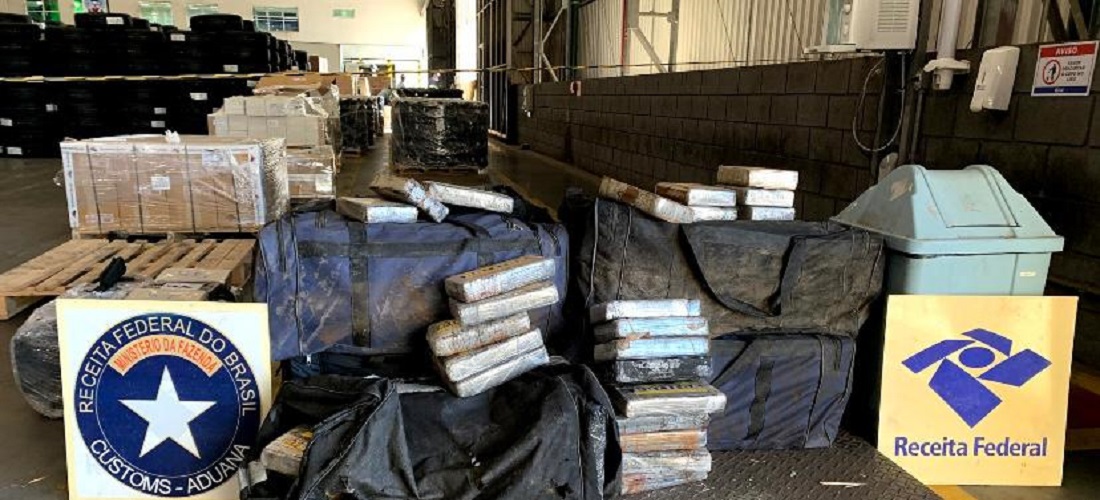
How does drug trafficking in ports harm Brazilian agriculture?
Jun, 15, 2021 Posted by Ruth HollardWeek 202125
The increase in port handling due to the flow of the agricultural harvest also opens doors for criminal activity. Last weekend, the IRS seized 475 kg of cocaine at the Port of Paranaguá (PR) in two operations.
“This greater flow of goods also increases our concern, as criminals operate in terminals with a greater flow of goods, due to the variety of routes that these places offer, especially to Europe,” explains Luciano do Carmo Andreo, customs officer for the Internal Revenue Service in Paranaguá.
In the arrest in Paranaguá, the technique used by the offenders is known as rip-on/rip-off, which consists of violating the container’s seal to place the drug. The IRS delegate says that after the drug is inserted into the container, the seal is cloned without the exporter’s knowledge. This criminal action is only possible with the help of someone who knows the procedures of the port, according to Andreo.
“In some cases, criminals even use shell companies for smuggling. But for all that to happen, they need inside information. It could be someone from the terminal, from a shipping company; this is very difficult to track”.
The IRS delegate reveals that since 2018, inspections have increased at the site and reduced the amount of seized drugs. According to him, inspections help maintain Brazil’s foreign trade.
“If this drug reaches its destination, it would certainly damage the image of Brazil and its exporters. If we let this kind of crime run wild, European countries and others would reject our loads. Port security is a facilitator of foreign trade between countries”, emphasizes Andreo.
Source: Rural Channel
To read the full original article, access the link below:
How does drug trafficking in ports harm Brazilian agriculture? (canalrural.com.br)
-
Meat
Jun, 08, 2020
0
Brazil’s pork exports 52% higher in May YoY
-
Economy
Jul, 12, 2019
0
Brazil’s rural credit to reach R$176bn in 2018/19 season
-
Dec, 07, 2022
0
FS, VLI join forces to launch pioneer corn ethanol freight operation
-
Meat
May, 20, 2021
0
BRF to invest R$ 319 million to expand Uberlândia unit


